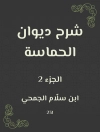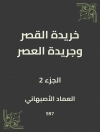In ‘The Death of Balder, ‘ Johannes Ewald intertwines the evocative themes of tragedy and myth in a profound exploration of the human condition. The play, steeped in Norse mythology, reincarnates the poignant tale of Balder, whose demise casts a shadow over the realms of gods and mortals alike. Ewald’s lyrical style combines rich poetic language with dramatic dialogue, capturing the tension between fate and free will, while positioning his work in a broader Romantic context that favors emotion and nature as dominant forces. Johannes Ewald, a pivotal figure of the Danish Golden Age, drew inspiration from the tumultuous socio-political landscape of his time, as well as from his own personal struggles with illness and despair. His foray into mythology can be seen as an attempt to reconcile his own existential crises with timeless tales of gods and heroes, reflecting a deep-seated yearning for meaning amid chaos. Ewald’s innovative blend of narrative and lyrical techniques marks his enduring legacy in Scandinavian literature. Readers intrigued by the intersections of mythology, philosophy, and poetry will find ‘The Death of Balder’ an essential addition to their literary repertoire. Ewald’s masterful treatment of myth and emotion not only elevates the tragic narrative but also resonates with contemporary themes of loss and redemption, making it an evocative read for those seeking both beauty and depth.
Giới thiệu về tác giả
Johannes Ewald (18 November 1743 – 17 March 1781) was a seminal figure in Danish literature during the 18th century. His poetic contributions had a profound influence on the Danish literary scene, marking the transition from baroque to romanticism. Ewald’s personal life was fraught with difficulties; he struggled with health issues and underwent a series of personal crises which deeply impacted his work. Nonetheless, his creative output remained remarkable. One of his well-known works, ‘The Death of Balder’ (‘Balders Død’), is an exemplary testament to his dramatic and poetic skill. This literary piece reflects Ewald’s keen ability to blend Nordic mythology with a modern dramatic form, displaying both sensitivity to form and emotional depth. His writings often grapple with existential themes and showcase a lyrical intensity, which are characteristic trademarks of his literary style. Ewald’s works continue to be celebrated for their innovation and emotional resonance within the canon of Danish literature. He was included in the Danish Culture Canon by the Danish Ministry of Culture in the category of Literature, further cementing his status as a literary icon. His legacy continues to be a subject of academic interest and his works are still widely read and analyzed for their aesthetic and historical significance.












